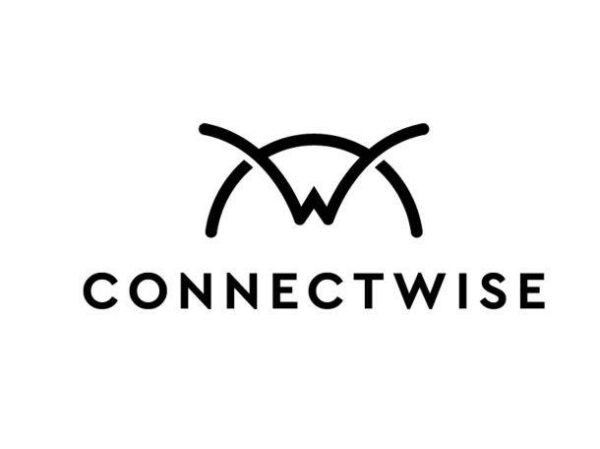PERRY proTECH builds a business around physical security.
There is more to security today than just monitoring printer/copier usage, safeguarding customer networks, and protecting against cybercriminals.
As IT infrastructures have grown with the proliferation of the internet of things (IoT), some office equipment/imaging dealerships are taking a harder look at physical security, even weaving it into monthly MPS service bundles. The challenge, however, can be the construction component.
“Physical security is geared toward construction with an aspect of technology around it,” cautioned Perry Carfagna, president of the technology division at PERRY proTECH in Dayton, Ohio. This provider of business tech solutions has been offering security services for nearly eight years to clients across northern and western Ohio, northeastern Indiana, and southern Michigan, working with every type of customer from medical offices and financial institutions to construction job sites.
Physical security represented as much as 25% of the firm’s total revenue in 2019, but PERRY proTECH’s offering has evolved.
“Most of our small and medium-sized clients don’t want to invest in eight cameras, say, or hardware for three access-control systems,” said Carfagna. “They don’t have the staff to support those products on-premise.”
The dealer is now launching a subscription service with data stored in the cloud. Monthly fee structures start at $79 per camera and scale up to eight cams. For access-control services, rates begin at $119 per door, scaling to eight devices as well.
Carfagna reports the company has a couple of beta testers for physical security-as-a-service and a few dozen prospects in the pipeline for 2020.
To date, the company’s success in this arena has come from a grassroots effort by its sales team to expand relationships with existing clients, as well as attract new ones.
“Barry Clark, our CEO, saw security as integration of IP [internet protocol] cameras and access control,” stated Carfagna. “He views it as more of a technology suite, not just facilities management.”
According to Carfagna, the opportunities can be horizontal, given that “almost every business has or needs some type of security measures.”
Experts Needed
Carfagna recommends either hiring internally or sub-contracting to obtain the necessary expertise to provide physical security. PERRY proTECH does a mix of both depending on project size and timeline.
To manage the nuts and bolts involved with security-related installations, Carfagna works with three or four sub-contractors for hardwire tasks such as pulling cable, mounting cameras and door devices, and repairing locks.
“Some clients may have relationships or contracts with electricians, so we work with them,” he said.
Depending on the type of customer and necessary security applications, solutions can be customized to meet a client’s needs. For example, restricting access to doors may entail securing cabinets with sensors to protect expensive equipment stored within. At construction sites, heavy equipment can be more tightly secured. PERRY proTECH has enabled earth-moving vehicles with GPS devices that trigger on any movement—not necessarily upon ignition. For example, an industrial thief might try to steal a bulldozer by using a heavy-duty, flatbed tow truck. There are also rattler alarms that can be mounted underneath stacks of valuable raw material, such as copper.
Security Best Practices
To effectively sell, configure, and support security services, Carfagna recommends dealers pick a standard and stick to it. Of possible 400-plus camera vendors, PERRY proTECH has vetted and narrowed down the field to three reputable companies based on the dealership’s customer portfolio and its clients’ needs.
After a thorough vetting process of access-control vendors, the dealership selected one. Carfagna explained that limiting the field of partners simplifies the company’s efforts in this area, especially in terms of the sales process, implementation, and “day 2” support.
When it comes to sales talk tracks, they can vary by client. One client may need video surveillance, while another requires access control.
“Security features different products and service offerings, but it’s still ‘Sales 101,’” said Carfagna.
He suggested three basic questions to ask prospects: What are you protecting? Why are you protecting it? What are your needs?
Internally, Carfagna does not believe that traditional managed services teams possess the necessary experience to sell security successfully. PERRY proTECH deploys a dedicated, three-member team consisting of a sales leader, a solutions architect, and an implementation specialist. These subject-matter experts are invited into the account by the imaging rep or the technical rep.
For compensation, Carfagna said the dealership ensures, “It’s fair on both sides.”
To be convincing and credible in the security arena, Carfagna believes dealers either hire the required expertise and/or partner with a knowledgeable third party. “Otherwise, you won’t be taken seriously,” he cautioned.
As with any new area of business, Carfagna also recommends dealers look to their existing client base to begin expanding into physical security.
“Start with who you already know,” Carfagna said. “That’s the fastest way to get started and ramp up. Those relationships already exist, and it’s easier to sell into them than to jump into a new market with a new client.”
Access Related Content
Visit the www.thecannatareport.com. To become a subscriber, visit www.thecannatareport.com/register or contact cjcannata@cannatareport.com directly. Bulk subscription rates are also available.


